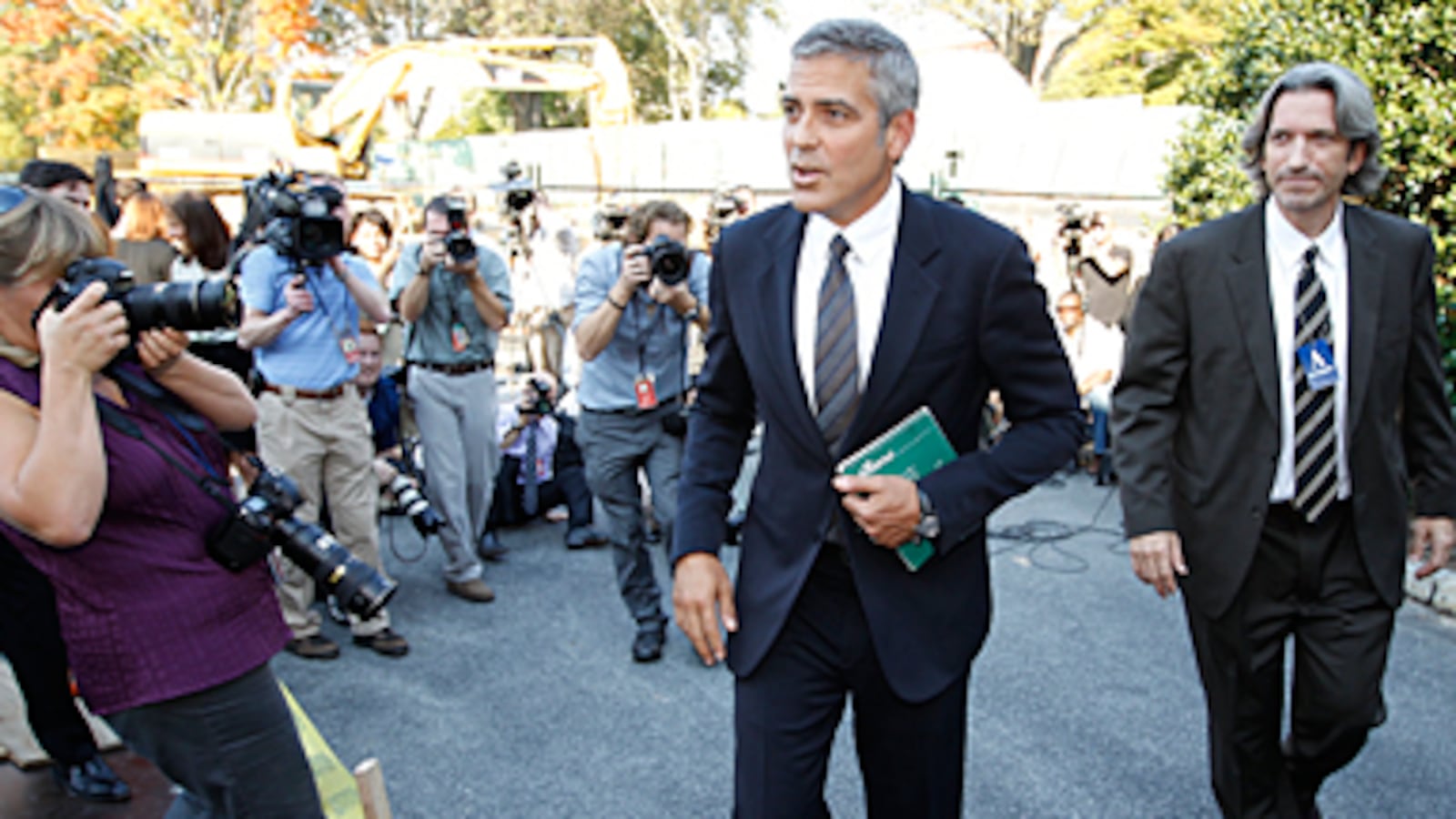Over the years we've become very good at using phrases to describe our outrage at genocide and other mass atrocities. NOT ON OUR WATCH! NEVER AGAIN! ENOUGH!
What we aren't good at is actually doing something to stop a crisis before it happens.
On January 9, 2011 the people of Southern Sudan will vote for their independence from the North, taking with them up to three quarters of known oil reserves and placing millions of civilians in the direct path of war, a war which cost two and a half million lives the last time they fought.
The government in Khartoum (the capital in the North) is led by Omar al-Bashir, whose list of accomplishments includes overseeing war crimes during the North-South war that ended in 2005, engineering the atrocities in Darfur, and an arrest warrant for war crimes and genocide from the International Criminal Court.
His government has publicly accused the two of us of "banging the drums of war."
We are banging the drum, but not for war.
The important thing to remember is that war in Sudan is not inevitable. There is a very complex but achievable peace that can be brokered if all interested parties are more deeply involved. The moment requires robust diplomacy, the kind that leaves a bad taste in your mouth but gets the job done.
We've gathered together plans and wish lists from dozens of the players involved: traditional chiefs and elders, civil society leaders, the president of South Sudan, government officials from Khartoum, key diplomats involved in the negotiations, as well as President Obama and Senators Kerry and Lugar.
Below are the basic elements of a possible peace agreement. We have a more detailed version on www.sudanactionnow.org for those of you that want these points fleshed out, but for the purposes of this piece we'll try to keep it simple.
Gallery: The Crisis in Darfur

Any agreement preventing a return to war would necessarily involve the NCP (representing the North) and the SPLM (representing the South.) But it would also involve the United States, because the post-referendum relationship the U.S. could have with the two parties will have enormous influence over whether a deal gets done.
We are banging the drum, but not for war.
We lay out here (in overly simplistic terms) the outlines of a grand bargain that could be struck to lay the foundation for lasting peace between the North and South. We believe such a grand bargain would oblige the parties to:
• hold the Southern Sudan referendum on time and respect and implement fully the results.
• transfer the area of Abyei to the South along the borders laid out by the Permanent Court of Arbitration.
• craft a multiyear revenue sharing arrangement in which the oil wealth of Abyei and key border areas could be shared equitably between the North and South, with a small percentage going to the Arab Misseriya border populations for development purposes.
• demarcate the uncontested 80 percent of the border and refer the remaining 20 percent that is contested to binding international arbitration.
• create serious minority protections with consideration for joint citizenship for certain populations, backed by significant international consequences for attacks on Southerners in the North or Northerners in the South.
• in exchange for actions on North-South and Darfur peace efforts, the U.S. would implement a clear, sequenced, and binding path to normalization of relations that would involve—sequentially—removal of Sudan from the State Sponsors of Terrorism list, exchange of ambassadors, lifting of unilateral sanctions, and support for bilateral and multilateral debt relief and other economic measures by the international financial institutions.
If we make it sound simple, it's not. But it is achievable. There are hard choices to be made here. We can make them now or resign ourselves to the fact that because it was too hard or too complex we chose to stand on the sidelines and shake our heads as hundreds of thousands of innocent men, women, and children die ON OUR WATCH....AGAIN...and somehow their deaths will never, ever be ENOUGH.
In October, George Clooney talked about the crisis in Darfur on Today.
In 2007, George Clooney, along with Brad Pitt, Matt Damon, Don Cheadle, and Jerry Weintraub, co-founded Not On Our Watch, an organization whose mission is to focus global attention and resources to stop and prevent mass atrocities in Darfur. Among the many honors received as a result of his humanitarian efforts in Darfur was the "2007 Peace Summit Award" given at The 8th World Summit of Nobel Peace Prize Laureates at their annual meeting in Rome.
John Prendergast is a human-rights activist and the author of 10 books, including Not On Our Watch: The Mission to End Genocide in Darfur and Beyond and most recently The Enough Moment: Fighting to End Africa’s Worst Human Rights Crimes with Don Cheadle.






